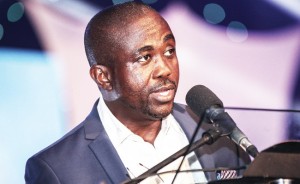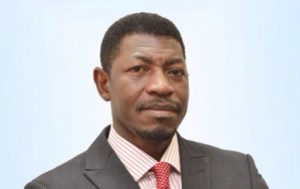Minister of Communications, Ursula Owusu-Ekuful has challenged telecom operators stem to deteriorating service quality and start giving customers value for their money.
She was speaking at the maiden industry stakeholders dialogue series organized by the Network of Communication Reporters (NCR) in partnership with MTN Ghana on the theme ‘Moving from Service Quality to Service Excellence’.
The Minister observed that customer complaints about repeated call drops, muted speech during calls, muffled voice (poor sound quality) and delays in call set up time seem to be increasing lately, and that calls for a closer collaboration between all stakeholders to stem it before it becomes the norm.
On that score, Ursula Owusu-Ekuful lauded the NCR for creating through platform for stakeholders to dialogue and find common grounds on how to deal with the issues and ultimately improve service quality and experience for customers.
She said such dialogues go a long way to provide valuable insights and feedback that will help improve the country’s ICT for development (ICT4D) agenda.
“I therefore urge the National Communications Authority (NCA) to engage the media, the public and other stakeholders is more of such dialogues to generate the needed insights to shape government policy for the benefit of the country,” she said.
“The media should be included in the discussions of the Industry Forum and other consultation meetings that will provide opportunity for the people’s voices to be heard. It is the openness in the sector’s activities and transparency in the conduct of our affairs that will be tribute to His Excellency President Nana Addo Dankwa Akufo-Addo,” the Minister stressed.
Ursula Owusu-Ekuful lauded NCR for initiating the industry dialogue series and urged them to assist government in the fight against cyber crime through consistent public education.
“I have come to appreciate the value of our stakeholders in promoting Ghana’s march to an information-rich and knowledge-based society and I welcome the commitment of NCR to the focus on ICT reporting. In our rapidly changing technology environment, we rely on our partnership with the news media to disseminate the right information to help educate the citizenry on the essentials of ICT development,” she noted.
Dean of NCR, Charles Benoni Okine observed that the consistency in the deterioration of service quality is unacceptable because those challenges cost consumers money while the telcos make money.
“It is worrying to find some of previous challenges coming back again plus additional once such as your primary credit running out while your data bundle is intact among other.
“In the midst of all these challenges, telcos continue to race against in each in the claim to being the best network while each of their customer continue to suffer poor service,” he said.
The NCR therefore urged the NCA to learn from the way Bank of Ghana dealt with the two non-performing banks which have become known as “CAPUT” and get tough on non-performing telcos, saying that withdrawal of licenses is in the industry regulation so it must be applied when necessary.
Charles Benoni Okine said it is not enough for the NCA to fine defaulting telcos who have the money to pay the fines while the affected consumers continue to suffer, adding that there must be tougher and deterrent sanctions.
Director of Regulatory Administration at the National Communications Authority, Kofi Datsa said fines are not the first resort at the NCA but the regulator engage and assist operators to deal with challenges and only use fines when the challenges become persistent.
He said as part of efforts to ensure the delivery of quality of service to subscribers, the regulator continue to monitor the quality of service indicators for operators once every quarter in all metropolises and twice a year in all Districts within the country.
Kofi Datsa also mentioned that a new complaints management system has also been put in place by the NCA to encourage consumers to voice out their dissatisfaction and track the status of their complaints.
“We believe that people do not have to come all the way to Accra to interact with the Authority. To decentralise our operations, the Authority opened seven regional offices in Kumasi, Takoradi, Ho, Sunyani, Koforidua, Tamale and Bolgatanga,” he said.
Acting CEO of the Ghana Chamber of Telecommunications, Derek Laryea observed that whereas telcos have a duty to ensure high service quality, factors such as the age old fibre and cable cuts, fuel and battery theft, use of fake phones, location of the service user, impediments to infrastructure installation and many other continue to affect service quality and customer experience.
He noted for instance that on daily basis, there are at least eight fibre cuts in the country, something that does not happen in countries where Ghanaians use as service quality bench marks.
Derek Laryea also noted that often people complain of losing credit and accuse telcos of stealing their credit, adding that smartphones by design, continue to work and consume data even when not in use so subscribers would need to put off their data if they do not want the phone to keep working while not in use.
Minister charge telcos to stem deteriorating service quality
-
